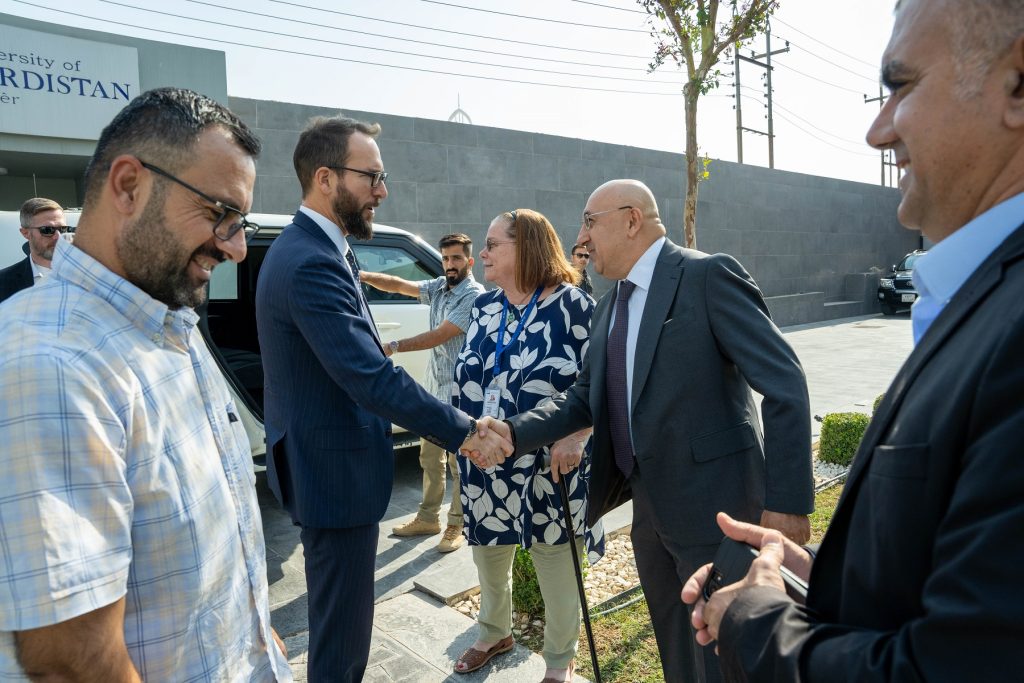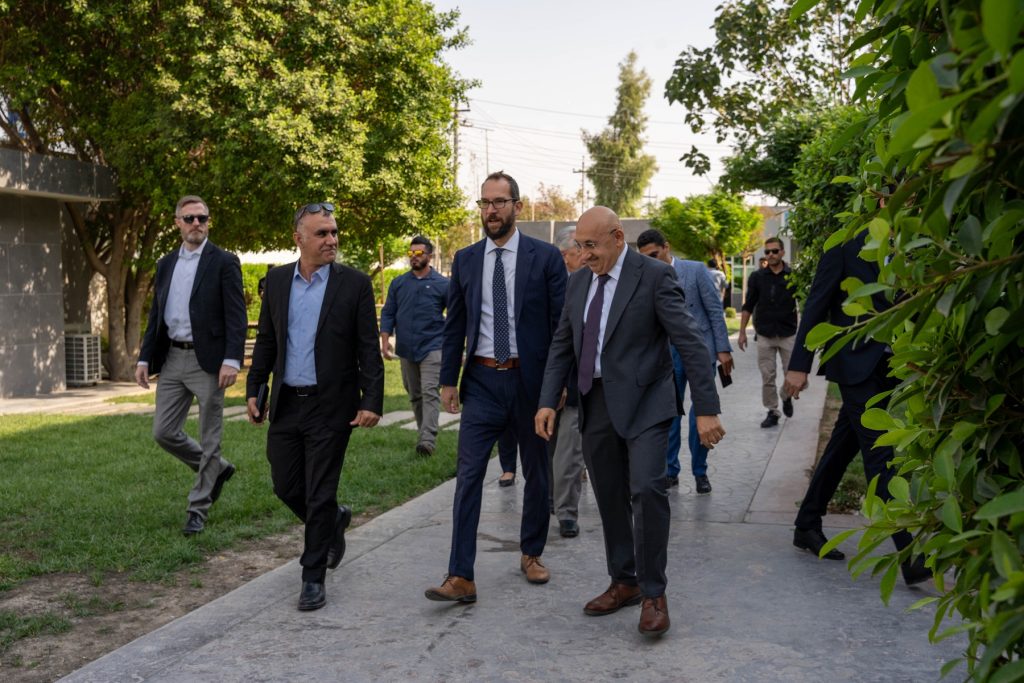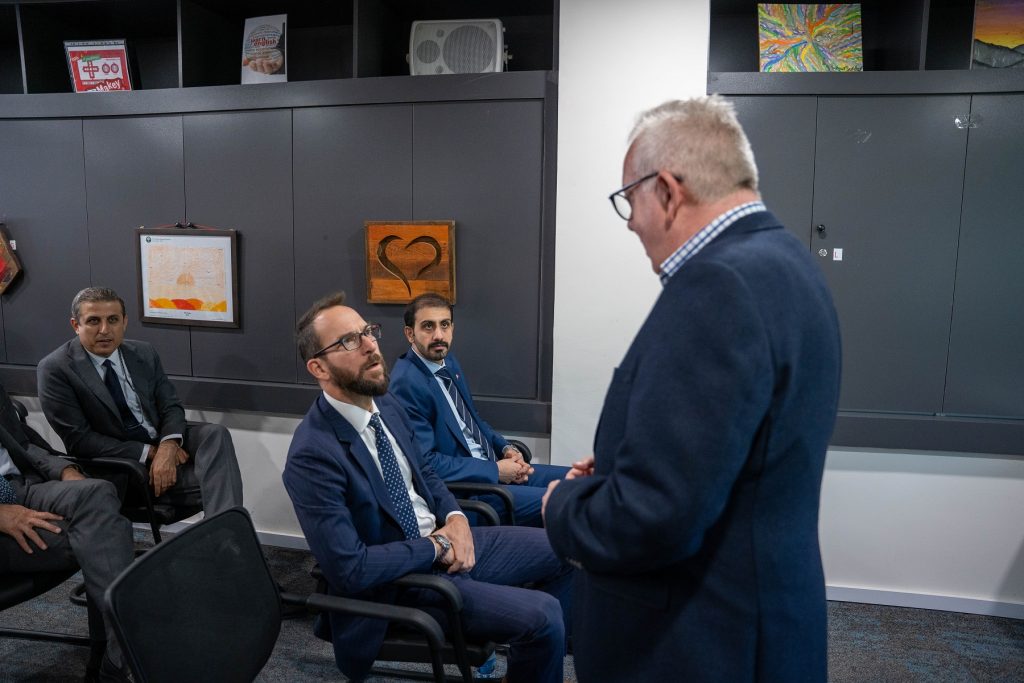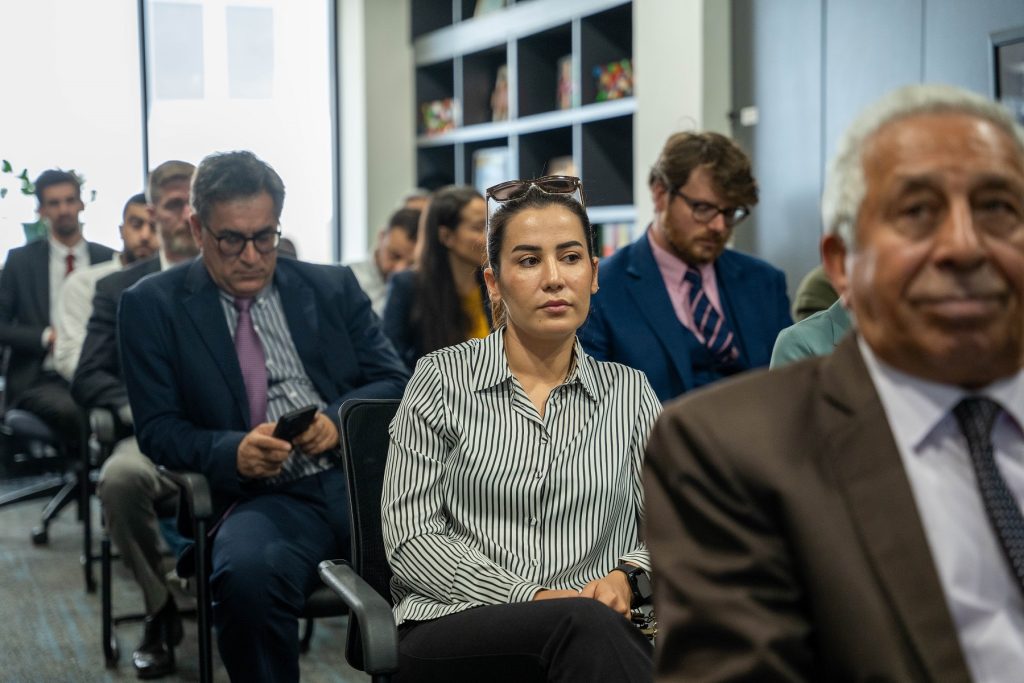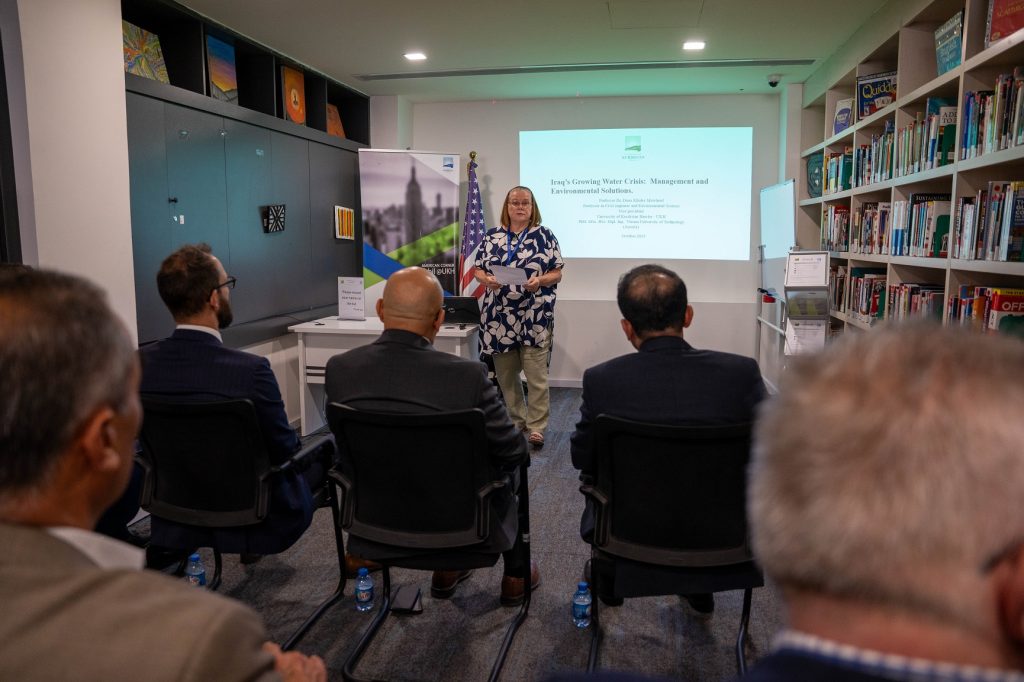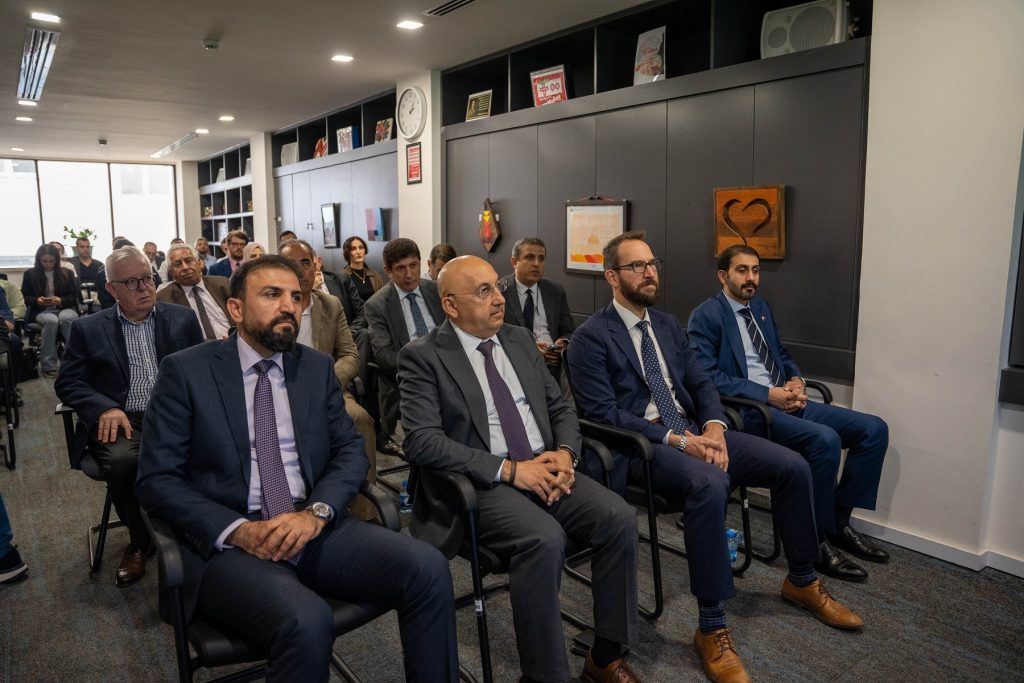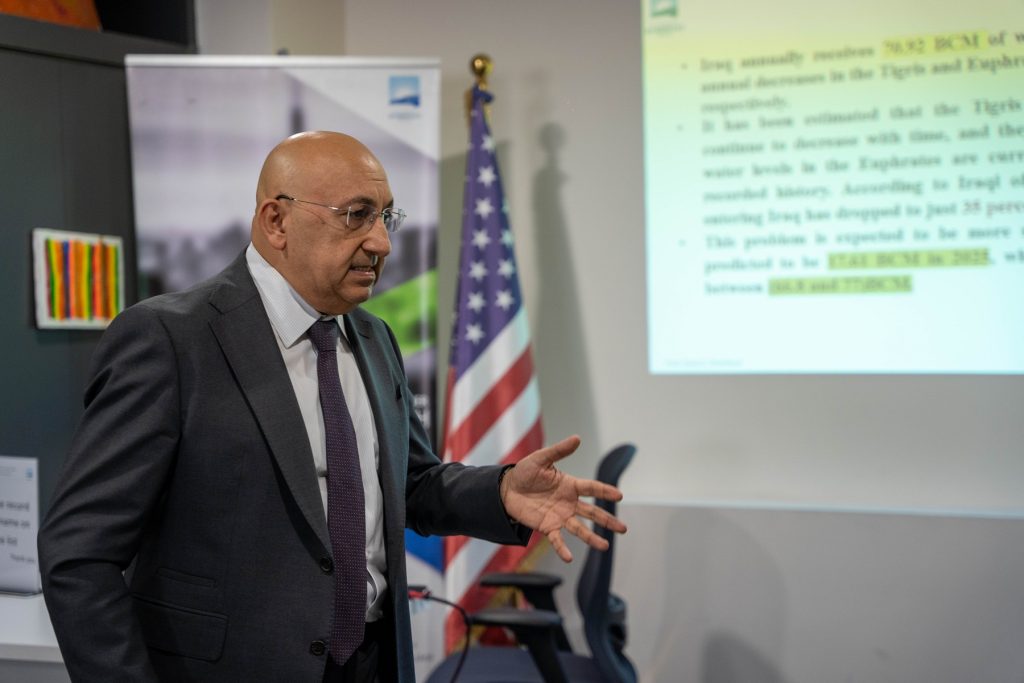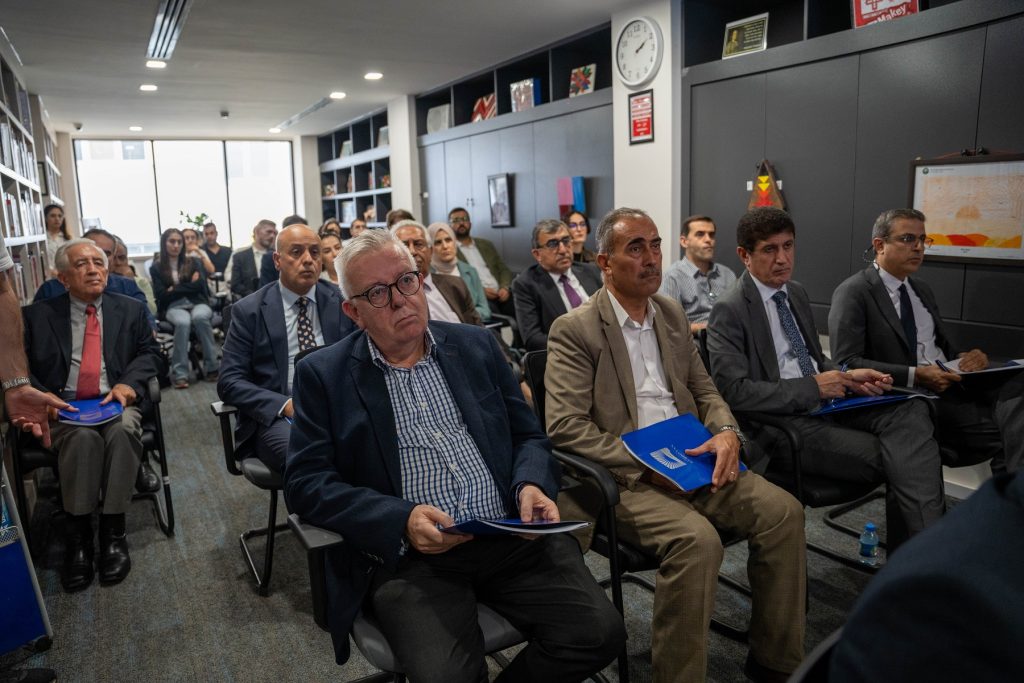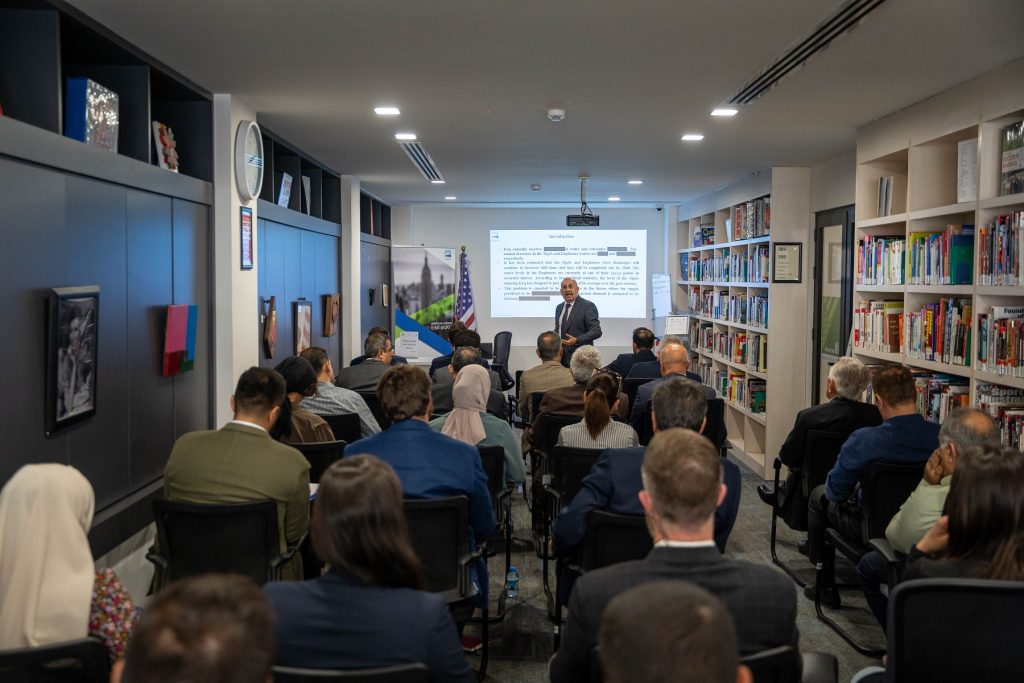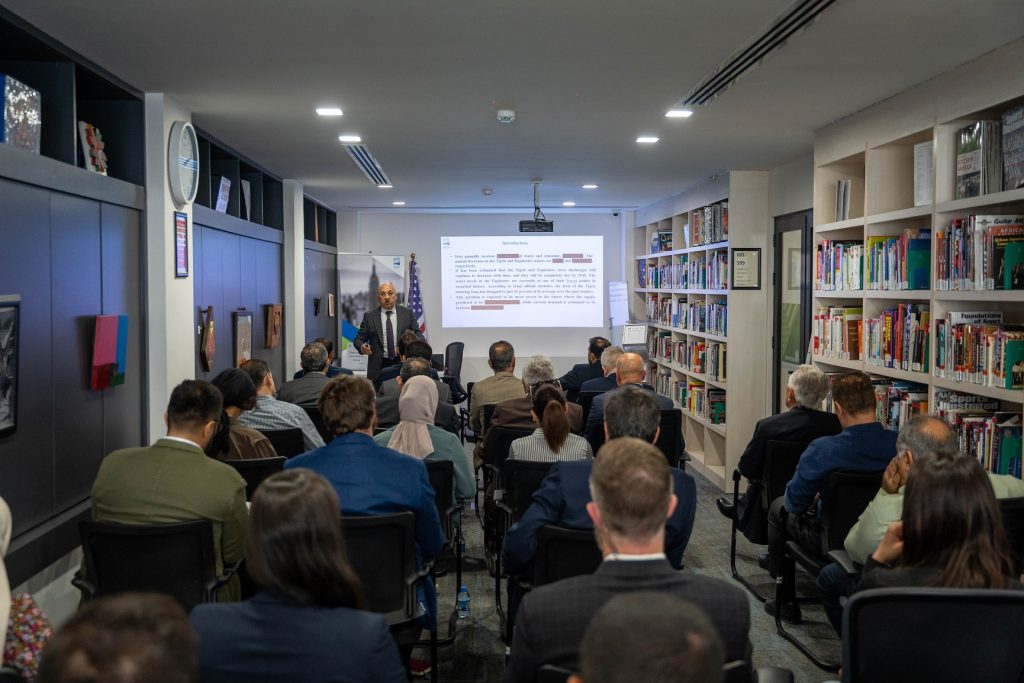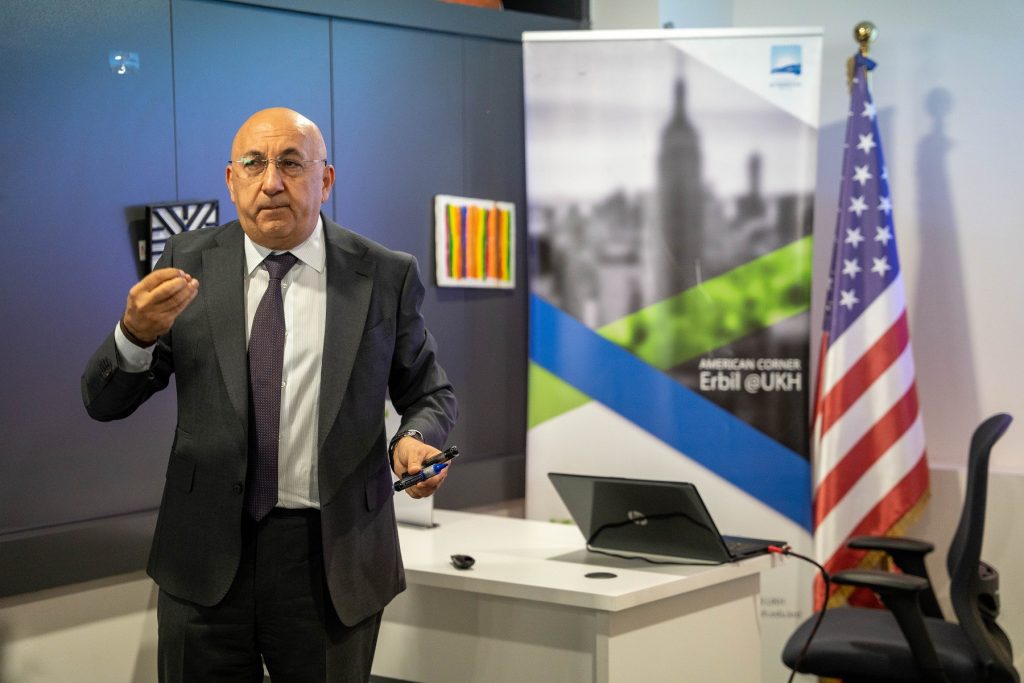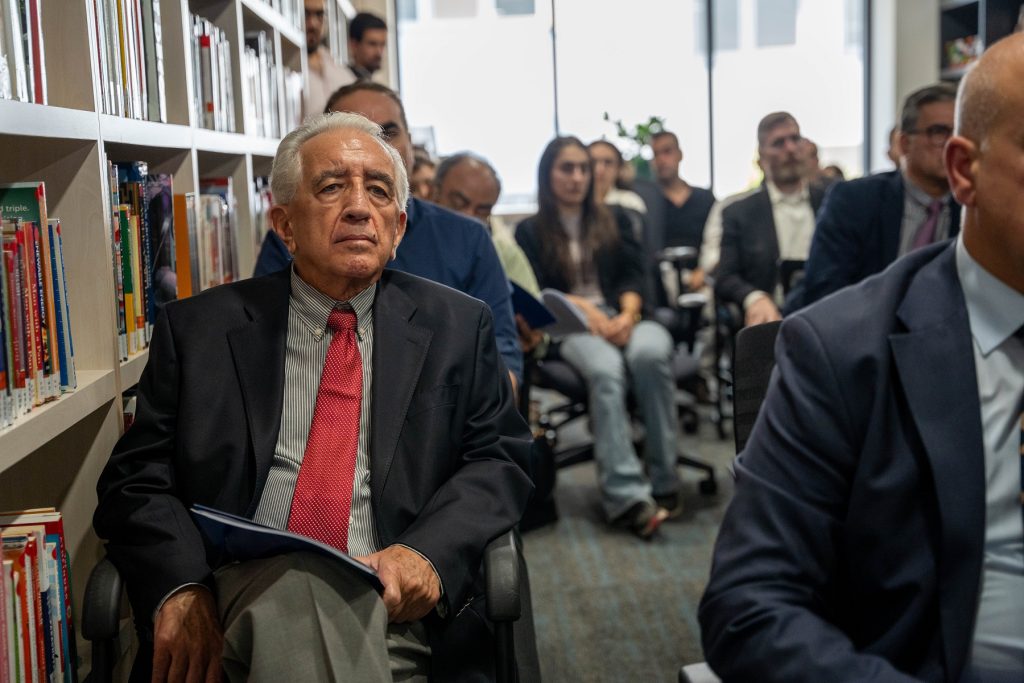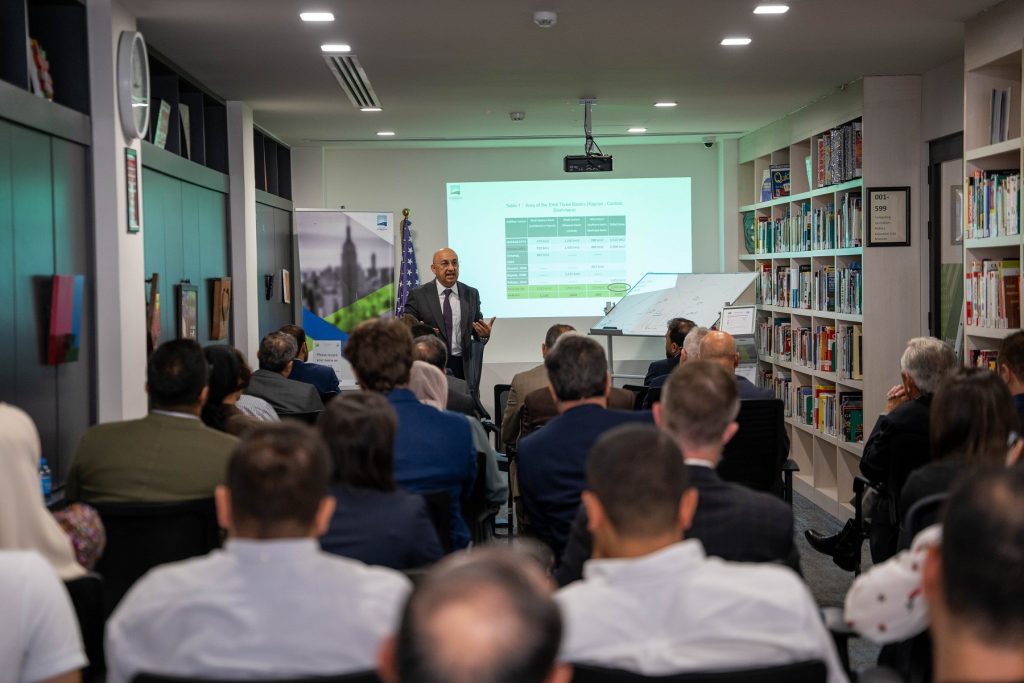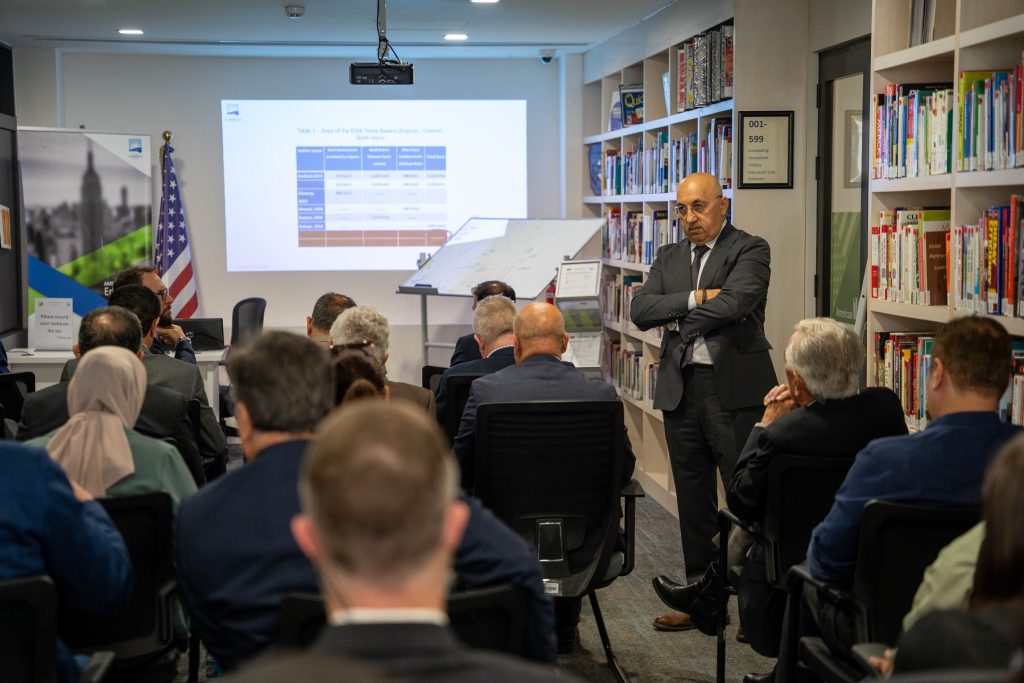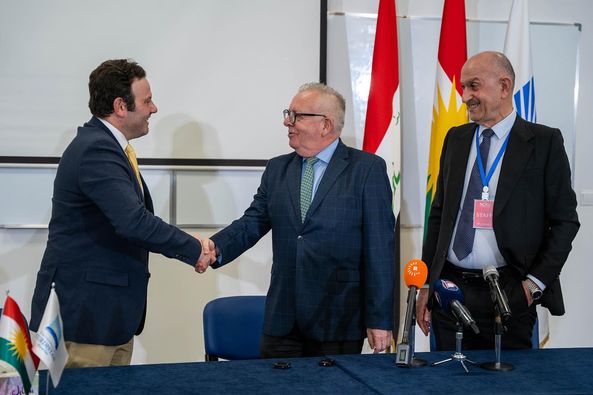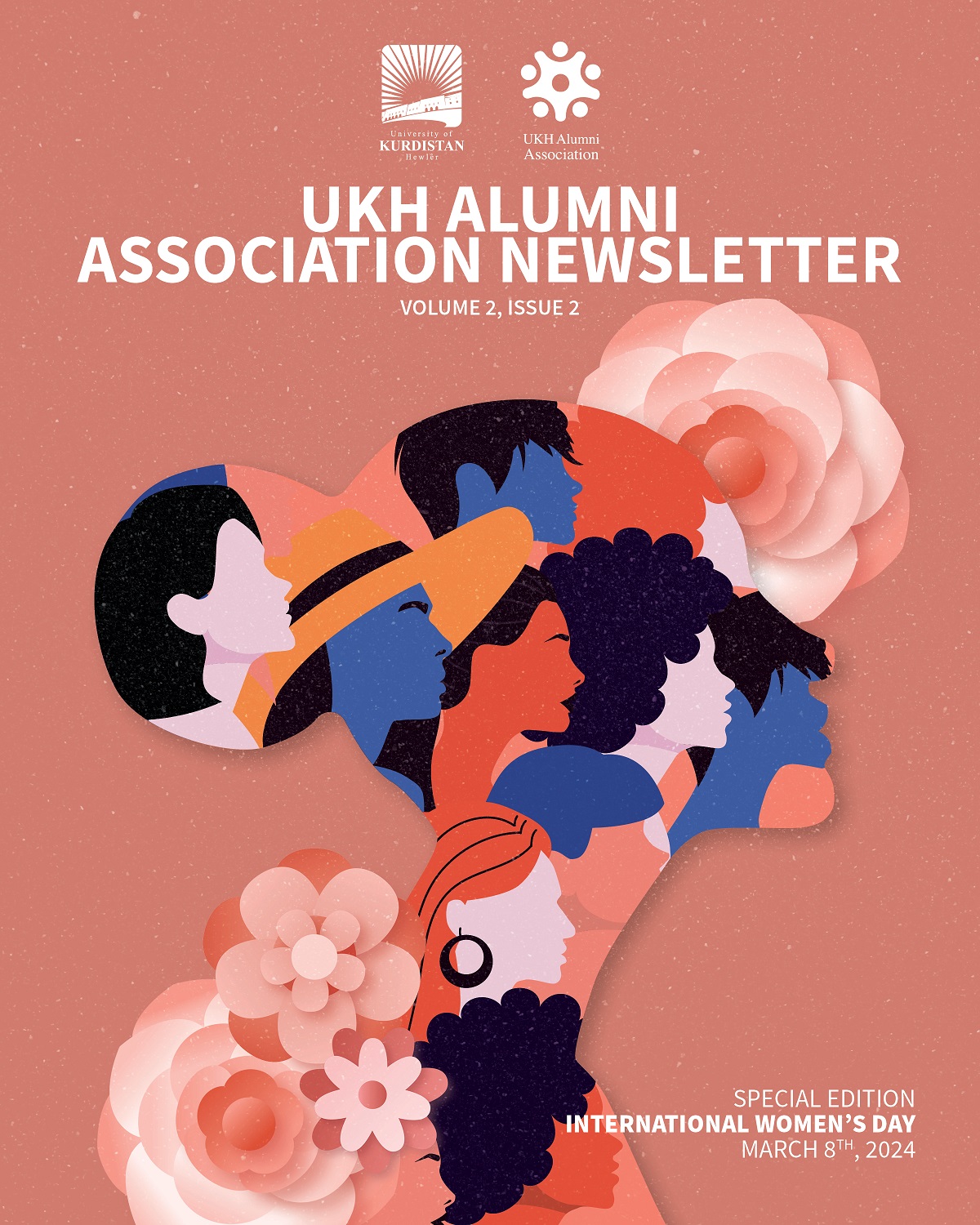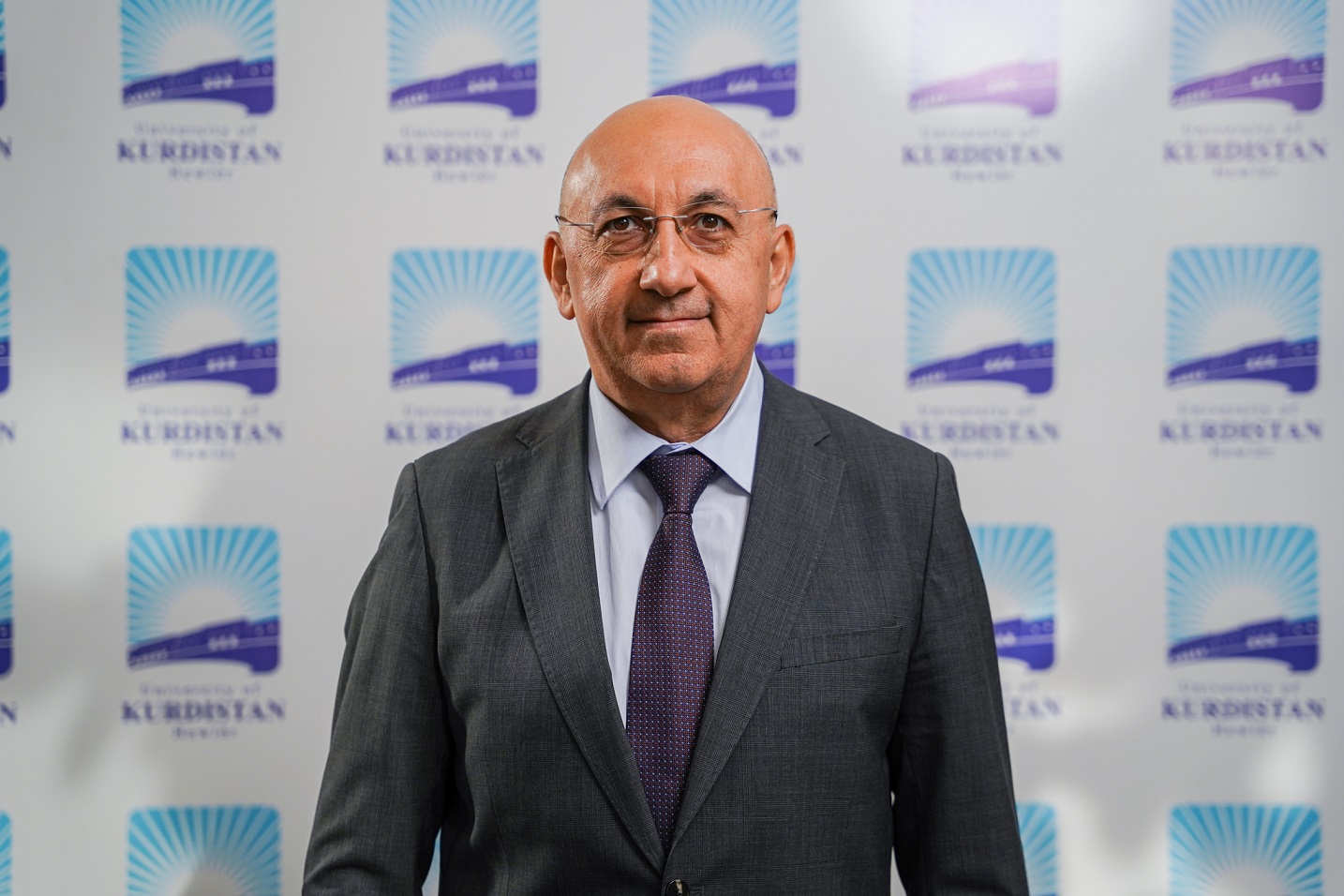On Sunday 15 October 2023, Vice President of the University of Kurdistan Hewlêr (UKH) Prof. Dr. Dana Mawlood delivered a special seminar titled “Iraq’s Growing Water Crisis: Management and Environmental Solutions”.
The seminar was delivered to diplomats, university presidents, dignitaries and officials with direct relation to the alarming water crisis in Iraq and the Kurdistan Region. US Consul General in Erbil, Consul General of Qatar, presidents of Salahaddin, Lebanese French and Duhok universities as well as Director General of Water and Dams in the KRG attended the seminar.
Professor Dr. Dana Mawlood holds a Diploma Engineering and PhD from the Vienna University for Technology in Civil Engineering (Water and Environment). He brings an extensive experience and has received his training and expertise from the International Institute for Management and Development (IMD) in Lausanne, Switzerland and other institutions in London, Austria, and the United Arab Emirates.
He is a well-published author in his field, and has publications in German, Kurdish, English, Arabic, and Bulgarian languages. Prof. Mawlood has taught in civil engineering in several universities in the field of water and environment engineering. He has a rich working background in oil and gas sector, namely Austrian international oil company OMV.
The seminar focused on outcomes from thorough research carried out in the Kurdistan Region and Iraq, flow of rainwater and shared rivers from Iraq’s neighboring countries, as well as climate zones of Iraq.
The seminar also studied water basins, water storage capacities and challenges as well as water consumption ratios in the country.
Iraq’s Growing Water Crisis: The Neighboring Countries
The research concluded that Iraq has almost zero control over it’s water resources as they flow from the neighbouring countries while the country itself suffers from severe impacts of climate change, a sharp decrease in rainfall and unprecedented heat waves.
“Scientific estimates indicate water availability from the Tigris-Euphrates River System will continue to decrease and will be completely dry by 2040. The water level in the Euphrates is currently at its lowest in recorded history. According to Iraqi official statistics, the level of the Tigris entering Iraq has dropped to just 35 percent of its average over the past century.” The research highlighted.
Internally, the Kurdistan Region of Iraq supplies most of drinking water to the southern parts of Iraq. The main annual flow of surface water from the Kurdistan Region to the rest of Iraq is estimated at 22.4 BCM, which is equivalent to 1064 m3/s.
Iraq’s Climate Zones
Geographically, Iraq possesses three climate zones, arid lowland desert in the west and south-west, semi-arid steppe largely covering the central region, and a moist Mediterranean climate in the north and north-east. These climate zones vary in temperature and precipitation. Iraq has experienced low rainfall rates and unprecedented temperature increases in the recent decades.
However, despite the different climate zones, The United Nations ranks Iraq as the fifth-most vulnerable country to the effects of climate change. Iraq has been in a prolonged drought since 2020 and experienced its second-driest season in the past four decades in 2021. Tigris and Euphrates water flows are down between 30 and 40 percent, posting the risk of desertification to half of the country’s farmlands.
Challenges of Water Management in the KRI
Mainly, the Kurdistan Region of Iraq (KRI) is facing two types of challenges to it’s water management, external and internal.
The Southeastern Anatolia Project (Güneydoğu Anadolu Projesi GAP) in Turkey, Tropical Water Project (TWP) in Iran, international agreements, and climate change are examples of external difficulties facing the KRI.
Internally, the KRI has a serious a deficiency in the legal aspect, lack of municipal laws, and poor water management.
The research concluded that The lack of water resources in Iraq and the Kurdistan Region is due to the policies of neighboring countries (especially Turkey) towards Iraq, the lack of specialised rational management of the water, landfills with waste water, and the lack of modern irrigation techniques with the increase in population and food security.
The research also added that Iraq needs immediate legislative, legal, educational, and investment plans, implementing environmental and sustainable development laws at the international and local levels, deterring transgressors and directing punishment to them, protecting the national product, cutting off commercial relations with countries that use the water issue as a pressure card Iraq.
